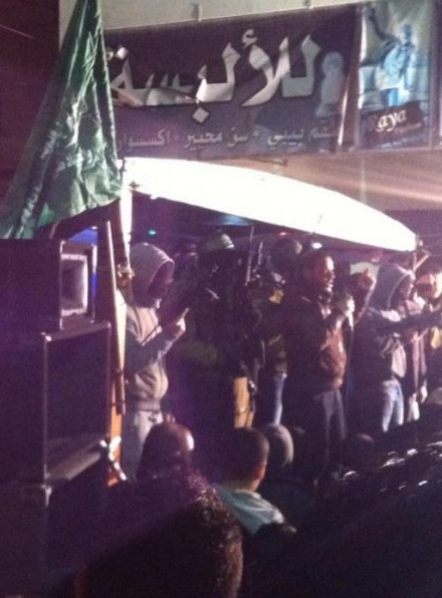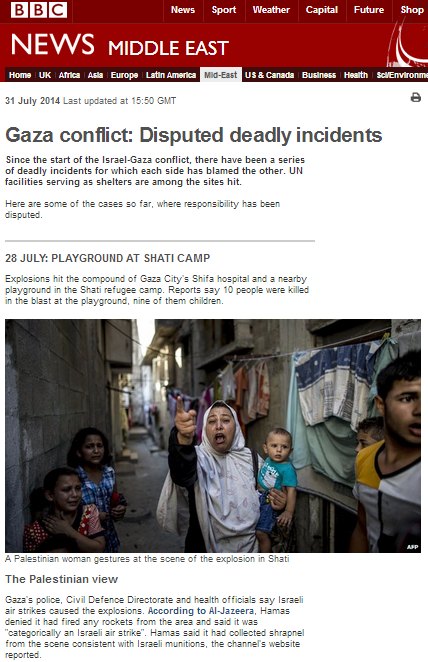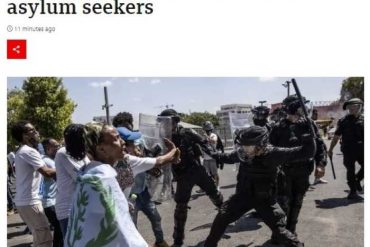On December 18th 2013 the BBC News website published an article pertaining to a counter-terrorism operation in Jenin during which Nafe a-Sa’adi was killed when Israeli soldiers trying to make an arrest were attacked by a mob.
At the time we noted here that the BBC chose to place the term counter-terrorism in scare quotes both in the sub-heading and in the body of the report, suggesting to audiences that there was room for scepticism with regard to the nature and definition of the operation.
“A Palestinian man is killed and at least four wounded after Israeli troops launch a “counter terrorism” operation in the West Bank.”
“Israel said its forces opened fire after being attacked during “counter terrorism activity” in the camp.”
On January 26th a memorial event for Sa’adi was held in the Jenin refugee camp, with armed members of Hamas’ al Qassam brigades making a rare centre-stage appearance. Photographs from the event can be seen here and here.
BBC audiences are of course highly unlikely to be shown such photographs or to be informed of the significance of public appearances by armed members of a terrorist organisation in a Palestinian Authority controlled region which lies within walking distance of the nearest Israeli communities.
appearances by armed members of a terrorist organisation in a Palestinian Authority controlled region which lies within walking distance of the nearest Israeli communities.
Instead, their ability to form an understanding of the security issues facing Israel – and hence also of any preventative actions taken – is shaped by an editorial policy based upon the patchy reporting of selected incidents (more often than not those involving fatalities) in isolation from the picture as a whole, the omission of any reporting on numerous other incidents and the promotion of a narrative which plays down the existence and scale of terrorism even through choice of language and punctuation.






